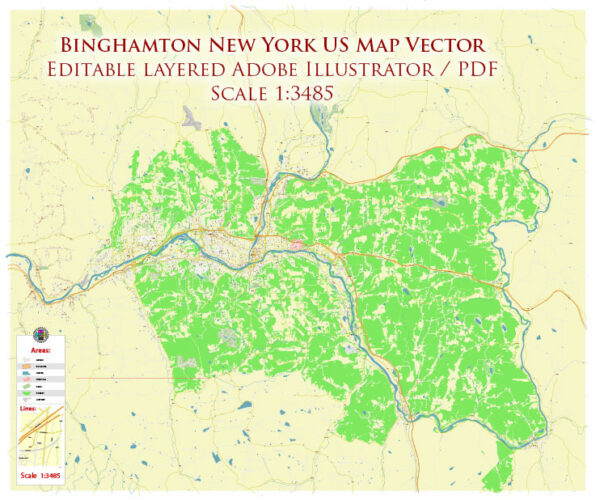Binghamton, New York, and its surrounding region have various natural resources that contribute to the local economy and environment. While Binghamton is not known for vast reserves of traditional natural resources like coal, oil, or minerals, it does have other valuable assets. Here are some of the notable natural resources and features in the Binghamton area:
- Water Resources: Binghamton is situated along the Susquehanna River, which provides a vital water resource for the city and its surrounding areas. The Susquehanna River supports various recreational activities and is important for the region’s water supply and ecosystem.
- Forests and Woodlands: The area surrounding Binghamton is characterized by forests and woodlands. These forests are valuable for timber production, wildlife habitat, and recreational opportunities, including hiking, hunting, and camping.
- Agricultural Land: The Southern Tier region of New York, where Binghamton is located, has fertile agricultural land. Local farms produce a variety of crops, including fruits, vegetables, and dairy products. Agriculture is an essential natural resource that contributes to the local economy.
- Wildlife and Biodiversity: The region around Binghamton supports a diverse range of wildlife, including various bird species, mammals, and fish. Preserving and protecting the area’s biodiversity is an important natural resource in itself.
- Outdoor Recreation: Binghamton’s proximity to natural areas, including state parks like Chenango Valley State Park and Salt Springs State Park, offers opportunities for outdoor recreation. These recreational resources are valuable for both residents and tourists.
- Renewable Energy Potential: While not a traditional natural resource, Binghamton and the broader region are exploring renewable energy sources, such as wind and solar power. These resources are becoming increasingly important for sustainable development.
- Clean Air and Water: The clean air and water quality in the region are essential natural resources that contribute to the overall well-being of the community and the attractiveness of the area for residents and businesses.
It’s important to note that the natural resources of Binghamton, like in many other areas, are increasingly recognized for their importance in preserving the environment, supporting tourism, and sustainable economic development. Efforts to protect and conserve these resources are crucial for the well-being of the community and the broader region.


 Author: Kirill Shrayber, Ph.D. FRGS
Author: Kirill Shrayber, Ph.D. FRGS